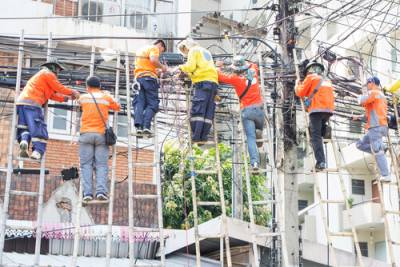What Types of Benefits Does California Workers Compensation Provide?
 No matter the job, no matter the field, California workers’ compensation exists to provide assistance to those who are injured at work. Nearly all employers in the state of California are required to carry workers' compensation insurance, with minor exceptions. If you are hurt on the job, your employer is supposed to report your injury to the Division of Workers’ Compensation (DWC) so your benefits can begin. However, insurers and employers often attempt to deny workers’ compensation claims, even if they have merit. A workers’ compensation lawyer can help you claim your benefits if your employer does not want to cooperate.
No matter the job, no matter the field, California workers’ compensation exists to provide assistance to those who are injured at work. Nearly all employers in the state of California are required to carry workers' compensation insurance, with minor exceptions. If you are hurt on the job, your employer is supposed to report your injury to the Division of Workers’ Compensation (DWC) so your benefits can begin. However, insurers and employers often attempt to deny workers’ compensation claims, even if they have merit. A workers’ compensation lawyer can help you claim your benefits if your employer does not want to cooperate.
Benefits Provided by Workers’ Compensation
To better ensure that you receive benefits in a timely manner, you must report your injury to your employer within 30 days of the accident or at the earliest time possible. The types of benefits you receive will depend on the extent of your injuries.
Workers’ compensation benefits include:
-
Medical Expenses: If you are injured and you require medical care, your employer is responsible for paying for those expenses. Workers’ compensation medical benefits cover a variety of things, including emergency room visits, doctor’s visits, hospital stays, surgeries, chiropractic treatment, prescription medications, and even some medical devices.
-
Temporary Partial Disability (TPD): If you are injured and you can still work, but you cannot do the work that you did before you were injured, your employer must pay TPD benefits. TPD benefits are designed to help bridge the gap between what you normally earn and the amount that you earn while you are healing, if it is less than your normal wage. TPD is paid until you are able to return to doing your normal job.
-
Temporary Total Disability (TTD): If you are unable to work at all for at least three days, your employer is required to pay TTD benefits. Your benefits are paid until you are able to return to work.
-
Permanent Partial Disability (PPD): PPD benefits are paid if you lose part of your body or the ability to use part of your body. For example, PPD benefits would be involved if you lose one of your fingers, but only after you have healed as much as you are going to heal.
-
Permanent Total Disability (PTD): If your injury is so severe that you lose two or more limbs or you are unable to do any type of work, you can receive PTD benefits. These benefits are typically two-thirds of your usual wages and are paid for life.
-
Vocational Rehabilitation: If you are unable to return to the job you had prior to your injury, your employer must pay for costs associated with finding you a new job. This could include vocational training or even education, in addition to job search counseling.
-
Death Benefits: In the event that you or a family member dies from a work-related accident, your family is entitled to certain death benefits. These can include funeral and burial costs and a survivor’s benefit for your family.
Contact Our Gilroy Workers’ Compensation Attorneys Today
Denied workers’ compensation claims are not uncommon, but they can be devastating if you need those benefits. At Raul Martinez Injury Law Firm, we can help you get the compensation you deserve, no matter where you are in the workers’ compensation process. To schedule a free consultation with one of our experienced Santa Clara County workers’ compensation lawyers, call our office today at 815-338-3838.
Source:
https://www.dir.ca.gov/dwc/wcfaqiw.html







